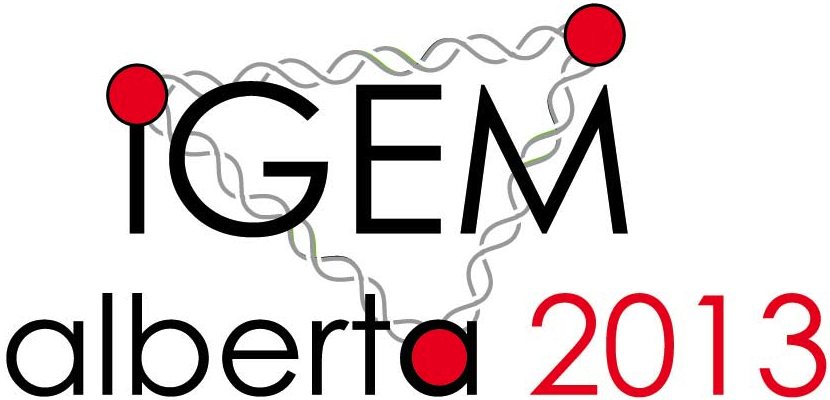Team:Alberta/Parts
From 2013.igem.org
(Difference between revisions)
| Line 388: | Line 388: | ||
Team Alberta: University of Alberta</font></i></h4> | Team Alberta: University of Alberta</font></i></h4> | ||
<a href="http://www.ualberta.ca" class="ualberta-logo"><img src="/wiki/images/b/b3/Ualberta-logo.png" alt="University of Alberta"></img></a> | <a href="http://www.ualberta.ca" class="ualberta-logo"><img src="/wiki/images/b/b3/Ualberta-logo.png" alt="University of Alberta"></img></a> | ||
| - | <a href="https://2013.igem.org" class="igem-logo"><img src="/wiki/images/a/a5/2013-igem-logo.png" alt="iGem Main Page"></img></a> | + | <a href="https://2013.igem.org/Team:Alberta" class="igem-logo"><img src="/wiki/images/a/a5/2013-igem-logo.png" alt="iGem Main Page"></img></a> |
</div> | </div> | ||
<div class="bin"> | <div class="bin"> | ||
Revision as of 22:03, 27 September 2013
BioBricks
Our 2013 parts submitted are a set of violacein genes derived from the violacein operon constructed and submitted by Cambridge in 2009 (BBa_K274002). We have made a number of modifications, including upgrading the plasmid backbone from pSB1K3 to pSB1C3 standard 10, and converting each of the five open reading frames into its own part with a common and improved ribosome binding site (BBa_B0030) such that they can be assembled in different combinations and permutations. All of the parts have been characterized and are functional, and we have found that a new combination, VioABCE, produces a new pigment which we call "Royal Blue".
<groupparts>iGEM013 Alberta</groupparts>
 "
"



